2024 Best MBA Programs
Best Value MBA Programs in America

Find your perfect value college
In today’s rapidly evolving business landscape, the allure of leveling up one’s credentials has beckoned many to re-enter the academic realm. Particularly for those nestled within the ranks of middle management, the whisperings of career advancement through a Master of Business Administration (MBA) have indeed found their mark. The contrast in career trajectory between MBA holders and those without is stark—higher earning potential, accelerated ascension to senior roles, and a fortified sense of job security are but a few of the dividends.
The digital age we’re navigating has rendered online MBA programs a compelling prospect. Their promise of flexibility, expedited completion, and a generally more affordable tuition structure has resonated with many. If you’re someone with a relentless self-drive, a friendly rapport with technology, and a disposition that finds comfort in a virtual interaction milieu, then the digital corridors of an online MBA program await you. The flexibility to tailor your study schedule around your life’s demands, the convenience of learning from any locale, and the accelerated pace at which you can traverse the curriculum are attributes that undeniably sweeten the deal.
Featured Programs
However, if the thought of an MBA journey bereft of the tactile, human interaction sends a chill down your spine, you may find yourself yearning for the traditional, brick-and-mortar MBA experience. There’s a certain magic in the face-to-face discourse, the spontaneous exchange of ideas, and the camaraderie built amidst the hallowed halls of a venerable institution. You thrive on real-world engagement, the electric charge of a live discussion, and the symbiotic motivation gleaned from your peers and mentors. Your forte lies in networking, in cultivating relationships in a face-to-face setting, where your interpersonal skills can truly shine. The community, the tangible interactions, and the rich, immersive learning environment of a residential MBA program call out to you.
For the individuals whose essence resonates more with the latter scenario, our Best Value MBA list is meticulously curated for you. This compilation is a gateway to programs that don’t merely dwell on theory, but thrive on real-world, personable interactions, paving the path for enduring professional relationships and a deeply enriching educational sojourn. Your quest for a value-driven, traditional MBA program that reverberates with your career aspirations and personal inclinations is a journey that begins here.
Rankings Methodology
In the endeavor to provide prospective students with comprehensive and reliable information regarding the best value online Master of Business Administration (MBA) programs in the US, we have developed a robust ranking methodology. The primary goal is to present a list of accredited programs that not only offer superior quality education but also demonstrate a high return on investment through affordable program costs.
- Accreditation:
- All listed programs are accredited by the Association to Advance Collegiate Schools of Business (AACSB), ensuring a standard of excellence and quality in business education.
- Cost Consideration:
- We’ve restricted our listing to programs with a total cost at or below $100,000. This decision, albeit limiting, is aimed at highlighting programs that offer remarkable value.
- Metrics:
- Our ranking employs a multi-metric approach to provide a balanced overview of each program’s value proposition. The metrics include:
- a. Total Cost of Program: – Comprehensive cost including tuition, fees, and other mandatory charges.
- b. Average Salary of Graduates: – Utilized as an indicator of the program’s potential return on investment. – Sourced from Payscale.com’s Annual College Salary Report, specifically focusing on the Master in Business Administration category to maintain consistency. – In instances where a program’s MBA salary data was unavailable, the median MBA salary reported for the city where the school is headquartered was used as a proxy.
- c. National Rankings: – Evaluated based on reputable national ranking systems which assess various aspects of academic excellence and institutional reputation.
- Data Normalization and Weighting:
- To ensure a fair comparison, data normalization techniques were employed to bring the different metrics onto a comparable scale.
- A weighted sum model was utilized to aggregate the normalized scores, with weights assigned based on the perceived importance and relevance of each metric in assessing the program’s value proposition.
- Special Considerations:
- Some programs may waive GMAT or GRE scores for online MBA applicants, making them more accessible to a broader range of prospective students including international students and working business professionals.
- It’s noted that while our focus is on general Business Administration programs, variations in specialized majors like Accounting or Management could slightly alter the outcome.
- Verification and Validation:
- Rigorous verification processes were conducted to ensure the accuracy and validity of the data collected.
- Validation of the ranking methodology was achieved through peer review and comparison with other reputable ranking systems.
- Transparency and Disclosure:
- We maintain a high level of transparency and provide full disclosure on the data sources, metrics, and methods used in our ranking process to ensure the credibility and usefulness of the information provided.
This methodology is devised to offer a thorough and objective analysis of the best value online MBA programs, aiding prospective students in making informed decisions regarding their educational investments.
1. Brigham Young University

Brigham Young University’s Marriott School of Business, situated in the heart of Provo, Utah, proudly boasts one of the most value-driven MBA programs, rendering it our top pick for best value MBA program. The affordability aspect of BYU significantly stands out, especially when compared to other large, private research universities. With a meticulously designed curriculum that ensures a comprehensive exploration of various business facets, the BYU Marriott MBA program has established itself as an epitome of high-quality, affordable business education. The program’s in-state tuition and fees amount to $27,720, which is notably lower than the average cost of MBA programs in Utah, pegged at $30,2451.
The MBA curriculum at BYU Marriott is meticulously structured to offer students a broad spectrum of business knowledge. Students delve into a myriad of business realms including but not limited to accounting, finance, operations, strategy, and analytics, thereby equipping themselves with a holistic understanding of business management2. Moreover, the program places a substantial emphasis on leadership and team management, preparing students to navigate the complex dynamics of today’s business world3.
One of the distinguishing features of the BYU Marriott MBA is its elite faculty, renowned for their academic and industry expertise. The faculty’s commitment to nurturing a student-mentor relationship creates a conducive learning environment, further enriched by their extensive industry experience and acclaimed academic work3.
The finance track, among others, prepares students for roles in corporate finance and financial institutions, tailoring the curriculum to meet the demands of general management positions with a strong finance background or more specialized positions within finance firms4.
Furthermore, the program boasts a vast array of specializations including Entrepreneurship, Finance, Global Supply Chain, Marketing, and Organizational Behavior/Human Resources Management. This flexibility allows students to tailor their educational experience to meet their career aspirations.
The global outreach of the BYU Marriott MBA program is manifested in its extensive alumni network, comprising nearly 65,000 graduates spread across 78 countries. This robust network facilitates a culture of collaboration, support, and mentorship, significantly enhancing the post-graduate opportunities for students. The alumni network is a testament to the program’s focus on cultivating a community of leaders
2. Indiana University
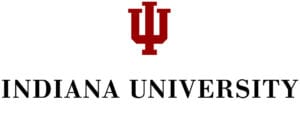
Indiana University’s Kelley School of Business, situated in the vibrant college town of Bloomington, Indiana, provides a highly esteemed MBA program that has been widely recognized as a valuable investment for aspiring business professionals. With a robust curriculum that covers crucial business domains such as finance, marketing, and quantitative analysis, the program ensures a thorough grounding in business fundamentals.
The program offers eight specialized majors, five of which are STEM-designated, including Business Analytics, Supply Chain and Operations, Entrepreneurship and Corporate Innovation, among others. These specializations are meticulously crafted to align with the most sought-after fields in the business realm, thus enhancing the marketability and career prospects of the graduates.
From the outset, the Kelley School accentuates career advancement through a blend of collaborative cohort experiences and personalized career coaching. This career-centric approach manifests in the impressive employment statistics, with over 95% of the graduates securing jobs within three months post-graduation. This remarkable achievement has earned accolades from reputable business publications like Bloomberg Businessweek and Financial Times.
Financial accessibility is a noteworthy feature of the Kelley MBA program. For the academic year 2021-2022, the tuition fee stands at $28,143 for Indiana residents and $52,483 for non-residents or international students. When factored in with room and board, the total cost of attendance is $32,379 for residents and $56,718 for non-residents per annum. Moreover, the program extends merit-based aids as part of the admissions process, further alleviating the financial burden on deserving candidates.
The Kelley School of Business creates an inclusive environment for military veterans through various outreach programs, reflecting a broader commitment to serving diverse communities.
The location in Bloomington, a town celebrated by numerous sources including National Geographic and the New York Times for its rich cultural scene, recreational opportunities, and culinary delights, adds a unique flavor to the residential student experience.
Not to be overlooked is the program’s ranking as the #3 MBA program in the US in 2020, a testimony to its quality and impact. The program also boasts a strong post-graduate salary average of $122,000, indicating a promising return on investment for its graduates.
The Kelley School of Business, with its blend of rigorous academics, career-oriented approach, financial accessibility, and a conducive learning environment, undoubtedly stands as a prime choice for individuals looking to catapult their careers to new heights through an MBA education.
3. Dartmouth College

It’s always a surprise to see Ivy League schools on a best value ranking, but those in the know realize that, whatever the sticker price, the Ivy League is dedicated to getting the best students, and their large endowments and prodigious giving allows them to provide financial support so that any student can graduate with little or no debt. Dartmouth’s MBA is built around team projects, interactive learning, experiential and experimental teaching styles, and rigorous reflection and analysis. It’s an elite group, and a challenging program with unique developmental benefits. Dartmouth’s semi-rural campus near Hanover, NH, is regarded as a familial, supportive environment, where even many graduate students choose to live on campus. As the smallest Ivy League school, students are encouraged to develop close relationships with one another and with their professors, creating a powerful bond that extends to Dartmouth’s successful, widely-dispersed alumni, meaning that a degree from Dartmouth can be a calling card for your career and an investment like no other.
4. Georgia Institute of Technology

Georgia Tech’s location – Atlanta, GA – puts it in a world-class business and finance center, with everything from tech, to banking, to entertainment in one of the fastest-growing economic powerhouses in the world. It should be no surprise, then, that an MBA from Georgia Tech would be a great investment in a business career. There are several reasons; in addition to location, which gives students access to internships, part-time work experience, networking, and post-graduation employment (second only to New York City), there is also Tech’s tuition, which, as a public university, is significantly lower than many private tech institutions. A high average salary for graduates, with a high ROI, means that any debt students incur can be paid back more easily. Acclaimed as one of the most important institutions in the world by U.S. News, Georgia Tech offers Scheller students a degree that will get them far, not only in the tech industry, but in any business capacity.
5. University of Texas, Austin

This elite business school in Texas, UT Austin’s McCombs School of Business, offers an MBA that is also a proven value. First of all, there are six programs to choose from, from the Full-Time, Evening, and Executive MBA tracks, to extension programs in Houston, Dallas/Fort Worth, and Mexico City. Students in the Full-Time MBA can choose from six concentrations, including an Interdisciplinary concentration to specialize in an unconventional or more specific area, and a cohort system, with stable study teams, help students work their way through the program while developing relationships and networking. A dizzying amount of opportunity for experience, from workshops and competitions to Fellows programs and internships prepare students for their career from the beginning of the program, while UT’s Austin location puts it in proximity to some of the biggest corporations in the world, including National Instruments, Dell, Whole Foods, and others for a start to your post-MBA employment. With numerous opportunities for financial aid, including scholarships, grants, assistantships, and loans, McCombs provides graduates with a high rate of job placement and innumerable benefits to make a UT MBA a top college value.
6. Texas A&M University

The Mays Business School, at Texas A&M University, offers a full-time MBA program from a university acknowledged as one of the best public institutions by U.S. News, Financial Times, Bloomberg Businessweek, and Forbes. With a focused, intensive program, students can complete their MBA in as little as 18 months, or continue with more courses to build their experience and credentials in specializations such as E-Commerce, Real Estate, Consulting, and more. Again, Texas A&M demonstrates the special attention a residential business school can give, with a spouse’s group to support the family of MBA students, numerous extracurricular clubs, and a familial cohort. A&M is also recognized as a military-friendly university, as well as a welcoming environment for Latino students, two segments of our populace who can benefit from the professional entry an MBA provides. Texas A&M’s Mays Business School is a value and an investment in a bright future.
Texas A&M University – Mays Business School
7. University of Wisconsin – Madison

Only one other business school matches the University of Wisconsin’s business school for the number of Fortune 500 CEOs on its alumni list: Harvard. That’s impressive company, and only one indication of Wisco’s quality and influence. With the Wisconsin MBA, students can choose from specializations in areas such as Operations, Real Estate, and Marketing, as well as a rare and unique Arts Administration specialization for students who wish to work in management for the fine arts, theater, recording, and other culture industries. During your time as a student, you’ll get to experience Madison, WI, widely considered one of the best places to live in America. The UW MBA is affordable, and with a wide range of alumni and corporate connections, a strong average starting salary for graduates, and a high job placement rate, any costs are likely to be offset by their benefits, meaning a high return on your degree investment.
8. University of North Carolina, Chapel Hill

If “UNC MBA” just seems to roll of the tongue, know that Bloomberg Businessweek, Forbes, and U.S. News & World Report seem to think so too – UNC’s Kenan-Flagler Business School certainly shows up quite often on their best-of lists. With an intensive, challenging, and demanding educational environment that rewards innovation and brilliance, with a community of motivated students who push each other farther than any individual, the Kenan-Flagler school produces graduates ready for anything the business world can send their way. UNC’s excellent resources give students unrivaled experience and global opportunities, along with financial aid that allows many students to graduate with no or little debt, increasing the value of a UNC degree. Plus, residence in Chapel Hill, one of the most beloved college towns in the US, is one of those unquantifiable extras that make a good investment into a great one.
9. Pennsylvania State University
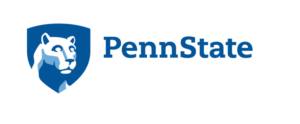
The Smeal MBA, from Penn State’s Smeal College of Business, is one of the best investments you can make in a graduate degree, if you’re looking for a job that will start paying off your student loans right away; according to Bloomberg Businessweek, Smeal is one of the business schools that the Fortune 500 is more keen to actively recruit, and their massive corporate network grows every year. Concentrations include Healthcare, Sustainability and Social Innovation, and Strategic Leadership, among others, and with a one-week global immersion experience students are prepared for a career in today’s international business world with trips to locations such as China, India, and South Africa. Numerous student organizations, access to several major business hubs, and a rewarding life in State College, PA, creates an environment of camaraderie, collaboration, and community, making an investment in the Penn State MBA an investment in every aspect of your life.
10. Texas Tech University
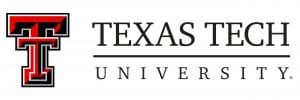
The Rawls College of Business at Texas Tech University offers several MBA programs including the STEM MBA, MBA for Working Professionals, MBA with an emphasis in Health Organization Management, and a Dual Degree MBA (student chooses another master’s degree in conjunction with the MBA). The Rawls College is an internationally recognized institution with its main objective to create future leaders within the business world. National rankings have featured Rawls as a Best Business Program (U.S. News), a 2015 Best for Vets (Military Times) school, as well as a 2014 Best Business B-Schools (Bloomberg Businessweek).
Texas Tech, located in Lubbock, Texas, offers affordable tuition for both in and out-of-state residents, and has outstanding job placement statistics with MBA graduates having 92.3% placement upon graduation, based on December 2014 graduates.
11. University of Washington

The Foster School of Business, at the University of Washington, offers many options for an MBA degree. In addition to the Full-Time MBA (a conventional 2-year MBA program) and the Evening MBA (a part-time, 3-year program), Foster also offers an Executive MBA designed for future corporate leaders (a 21-month program) and two accelerated specialist programs: the Technology Management MBA and the Global Executive MBA. With so many options, all of which have been cited by U.S. News, Bloomberg Businessweek, Financial Times, and/or the Economist, there’s sure to be something that fits every working adult’s lifestyle. Foster has many clubs and special events intended to increase and make the most of their diversity, including Minority Business Awards, Association of Latino Professionals, and Foster Women in Business, to name just a few; that dedication to diversity means a strong, well-rounded education as well. With all of these impressive stats, you hardly even need to know that UW’s job placement and average starting salaries rival the Ivy Leagues to realize that the Foster School of Business is a prime college value.
12. University of Florida
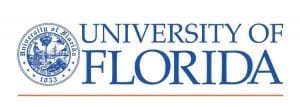
With high rankings from U.S. News & World Report and the Economist, the University of Florida’s Hough Graduate School of Business offers a number of MBA options with excellent reputations. The Traditional MBA, focusing on general business expertise, is offered in both two-year and a one-year accelerated formats, with concentrations including Strategy, Finance, Supply Chain Management, Marketing, and Real Estate and Urban Analysis. Career accelerator programs help students develop further specialized skills in intensive, hands-on projects. For working professionals who cannot take away time from their careers for full-time schooling, the Professional MBA and Executive MBA are designed in more convenient, flexible formats, including weekend and evening courses. Whatever path you choose, you can be confident knowing that UF’s graduates have high job placement rates and starting salaries, so your degree can start paying for itself right away.
13. University of Connecticut

With March Madness just past, it’s important to note that UConn isn’t just about basketball: it’s also named as a Public Ivy and one of the best public universities in the US, with excellent programs in law, medicine, and, of course, business. The UConn College of Business offers an MBA with unique accelerator programs (one-semester practicums) in finance, innovation, Sustainable Community Outreach and Public Engagement, and a Student Managed Fund of over $2 million. For resident students, life in quiet, quaint Mansfield, CT could be soothing, and a safe place to raise children if you’re bringing a family on your MBA trek. UConn boasts a 94% job placement rate for MBA graduates, with a high initial salary and ROI, making UConn’s MBA a top choice for education investment.
14. Purdue University
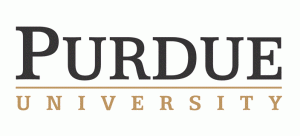
The Krannert School of Management, at Purdue University, explicitly seeks students motivated to build their STEM background into business careers in the modern, technology-driven economic world. The traditional 2-year MBA features 14 possible concentrations, more than almost any reputable program including Manufacturing/Technology, Strategic Management, and Operations, as well as more common heavy-hitters like Finance, Accounting, and Marketing. But Purdue also offers an exciting MBA for STEM one-year accelerated program, dedicated to helping STEM professionals develop business skills to advance in management for science and tech organizations. This is a unique program not commonly found in business schools, and one well worth considering for STEM majors, considering the massive shifts in the 21st century business world. Finally, West Lafayette, loved for its Midwestern community spirit, will help you through those challenging years as you work toward your degree, knowing that you’ve chosen a college value.
15. Michigan State University
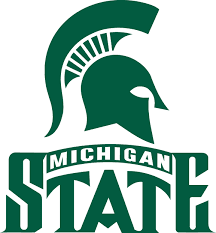
High marks from Businessweek, Forbes, and U.S. News & World Report put the Broad Graduate School of Management, at Michigan State University, on the map as a top college value. Broad offers a traditional Full-Time MBA and an Executive MBA (meeting on weekends for busy working managers and professionals). The Full-Time MBA offers concentrations in Finance, Marketing, Human Resource Management, and Supply Chain Management, while the Career Services Center helps students build their personal worth for employment after graduation. And here’s some more good news – average time for Broad graduates to pay off grad school costs, according to Forbes: 3.3 years. That tells you MSU is doing something right.
16. The Ohio State University
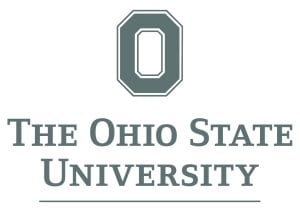
The Fisher College of Business, at The Ohio State University, proves its standing as a college value with high job placement rates and high average starting salaries, demonstrating the demand for Ohio State graduates in the work force. Acceptance to the full-time MBA is kept small so students can develop close, binding connections that will help them get through the rigors of the program, and help them help each other after graduation. Seven different majors, including Financial Reporting and Analysis, Strategy, Leadership and Organizational Behavior, as well as the opportunity to design your own major, prepares students for specialized work in lucrative fields, while a number of organizations, projects, and global opportunities provide valuable perspectives on a complex world economy.
17. University of Texas, Dallas
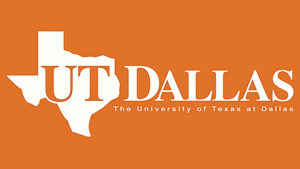
Hold on to your hat, because UT Dallas has a lot of MBA options from the Jindal School of Management. The Full-Time, Executive, and Professional Evening are all cohort programs, so students start out with a select group of fellow students and track through the program with those same people, building trust and collaborative skills along the way. The Professional Flex MBA, on the other hand, is self-paced – you choose your own classes and work your way through at your own pace. Then there are the concentrations, 15 in all, including not only the expected specializations like Finance and Marketing, but more unusual offerings like Energy Management, Internal Audit, and Strategic Management. And then, the specialized versions of the Executive MBA, including the Global Leadership, Physicians, and Project Management Executive MBA programs. With that many choices, if UT Dallas doesn’t have what you’re looking for, you must not be looking for an MBA. And that would be a shame, because the Jindal School is acclaimed by U.S. News & World Report, and job placement and salaries prove that UT’s MBA is a great college value.
18. Emory University

Emory University’s Goizueta Business School (named for a former Coca-Cola executive) offers a number of MBA options, including one-year and two-year full-time MBA programs, a weekend Executive MBA, and an evening MBA. In addition to high rankings in Businessweek and U.S. News & World Report, Goizueta also ranks at the top in job placement for graduates. Goizueta’s diversity strategy means that Goizueta is committed and determined to build a program that welcomes and benefits students from all backgrounds, creating an education that values different perspectives and thinking. With great job placement, diversity, and options, Emory’s Goizueta Business School is an investment that you will not regret.
19. University of Maryland
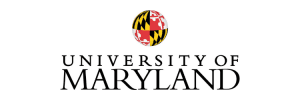
Here’s one of those cases, which often happens with business schools, where location is crucial: College Park, MA, home of the University of Maryland’s Smith School of Business, is on the doorstep of Washington, DC, which you may know as the nation’s capital. Obviously, DC isn’t all politics – it’s also one of the most important business centers in the world, making an MBA from the University of Maryland a prime spot for internships, networking, and post-graduate employment. Highly regarded by Financial Times and Businessweek, the Smith School of Business offers one of the top Full-Time MBAs in the nation, along with Part-Time and Executive MBA programs. While out-of-state tuition is noticeably more than in-state, high job placement rates and average starting salaries mean students will be able to pay off any debts they incur pretty quickly, while heading into a satisfying, rewarding career with a top college investment.
20. University of Pittsburgh

The University of Pittsburgh’s Katz Graduate School of Business offers a one-year MBA (a format pioneered by Katz), a conventional two-year program, and a more flexible part-time MBA. Students can choose from more than 15 specializations in areas such as finance, information systems, and operation. Highly ranked by Forbes, USN&WR, Businessweek, and others, the Katz Graduate School of Business has roots going back to 1907, when the University of Pittsburgh began its first business school, and that long history of excellence continues today for students looking for a top value investment in an MBA.
21. University of Minnesota

The Carlson School of Management, at the University of Minnesota, is solidly ranked by the major ranking organizations, such as U.S. News, Forbes, and Businessweek, and offers several unique MBA options. In addition to the traditional Full-Time and Part-Time MBA programs, the University of Minnesota also offers Executive MBA programs at home in Minneapolis, as well as China and Vienna, Austria. These international programs demonstrate Carlson’s commitment to global business, but if you’re more interested in the domestic degree, there are still six specializations to increase your market value, including Healthcare, Information Systems, and others. Carlson is also actively recruiting military veterans, developing programs to help vets adjust more smoothly to academic and civilian life, with plans to continue aggressively expanding their services and proportion of veteran students, so the University of Minnesota is another good choice for servicemen and women.
22. University of Georgia

While Athens, GA, isn’t in the heart of Atlanta, like Georgia Tech (above), it’s in close enough proximity that over 90,000 UGA alumni live and work in Atlanta. That’s a big network of alumni, and being close to a business hub that rivals New York City means more opportunities for employment in some of the highest-paying, most desirable companies in the world. Nine Full-Time MBA specializations, including Risk Management, Human Resources Management, and others, gives Terry College of Business students the skills they need for a wide range of careers. UGA, being a state university, charges considerably more for out-of-state residents, but considering the quality of education (ranked by everyone that matters) and the solid ROI and salary averages for graduates, it’s a smart investment wherever you’re coming from.
23. University of Illinois, Urbana-Champaign
Recognized as a top business school by U.S. News & World report, the University of Illinois College of Business offers an MBA degree that delivers on its promise as a great value. While there are some pre-designed specializations, from the conventional Finance and Marketing to more unique offerings like Strategic Management and Corporate & Social Responsibility, the Illinois MBA is notable for its liberal customization policy, allowing students to take courses from across the university to make their degree specific to their desired career. Besides the obvious benefits of the educational quality, there are also other advantages unique to the University of Illinois – for one, the largest alumni network in the US, meaning a huge number of committed, loyal graduates in pretty much every job sector looking for new Fighting Illini to come up in their employment searches. When networking and relationships are so important to finding work and making the most of your potential, that’s a value that can’t be denied.
24. University of Notre Dame
Much like the University of Georgia above, the University of Notre Dame, in lovely South Bend, Indiana, is near a major financial, manufacturing, and business capital, Chicago. That proximity gives Notre Dame graduates a leg up when it comes to entering the workforce because the opportunity to make connections and network is an essential part of the MBA experience. Notre Dame’s reputation is as high as the Ivy League, and an MBA degree from the Mendoza College of Business is its own best advertising. With 1-year, 2-year, and Executive MBA programs, as well as a number of dual MBAs (law, science, and engineering), students can get as specialized and intensive as they wish, with the potential of Notre Dame’s high ROI, excellent job placement rate, and ample average starting salary for graduates as proof of Notre Dame’s status as a world-class investment and the best value MBA program.
25. Vanderbilt University
It would be shocking if a university established by and named after 19th century lord of industry Cornelius Vanderbilt did not have an excellent business school. Of course, Vanderbilt University, in Nashville, TN, has the Owen Graduate School of Management, a permanent member of the top 10% of business schools according to every significant ranking publications, from Bloomberg to U.S. News and everything in the alphabet in between. The Vanderbilt MBA is a 2-year program, but don’t call it conventional – it is designed in a modular format, with intensive 7-week courses set up to send you into your specialization early on. Concentrations include Finance, Human and Organizational Performance, and strategy, and further electives allow students to specialize more deeply. Vanderbilt’s job placement is stellar at 94%, and an average base salary for graduates at over $100,000 means that the Vanderbilt MBA will begin paying for itself in no time.
26. State University of New York – University at Buffalo
SUNY Buffalo has the reputation of a Public Ivy, with its School of Management earning high marks from U.S. News & World Report, the Princeton Review, and Businessweek, among others. The UB MBA has a recently redesigned curriculum more suited to contemporary business, and students can choose from full-time or accelerated programs. With an annual trip to China, the LeaderCORE leadership certification program, speaker series, a corporate mentor program, and numerous other career building opportunities, the UB MBA prepares students for a variety of positions, with skills to take on almost any role in corporate and business life. SUNY Buffalo’s combination of great preparation and great value make it a top investment and one of the best value mba programs.
27. University of California, Irvine
If you’re interested in a residential MBA program – and obviously, you are – UC Irvine, located in California’s Orange County, offers more than just a great education and excellent job prospects: it offers Orange County, one of the sunniest, mildest climates in the world, with beautiful beaches just around the corner perfect for an active lifestyle. Of course, it also has the other things; with a curriculum designed around Strategic Innovation, Information Technology, and Analytic Decision Making, an MBA from the Merage School of Business prepares students for careers in the future, not just the now, and for a place in the many forward-thinking and growing businesses in Orange County, home to some of the most technologically advanced industries. Along with internships and inspiring international trips, UC Irvine’s MBA offers unique access to high starting salaries and a great ROI, with your career success the greatest outcome.
28. Arizona State University
With full-time, part-time, and executive MBA programs, Arizona State’s Carey School of Business has the full suite of options for students, with ten concentrations (and soon to add Sports Business). But it also has many of those less tangible advantages that give an MBA its real value. For instance, the Carey MBA program is kept small, so students can develop close, lasting relationships with one another and with their instructors, a benefit when they enter the job market. ASU’s location in Tempe, a suburb of Phoenix, also puts the school in close contact with the strong and growing business community of that metropolitan area, a prime location for networking, internships, and employment. The Executive Connections program pairs students with coaches and mentors from the business world, providing students with an opportunity to shine and impress the people who could help them take their first steps into the business world. With all that, plus reasonable tuition, high average starting salaries, and a solid ROI, Arizona State is a seriously one of the best value MBA programs in US.
29. The University of Tennessee at Knoxville
The Haslam College of Business, at the University of Tennessee at Knoxville, is ranked highly by U.S. News & World Report and Businessweek, as are many schools, but also finds a spot in the top 100 business schools according to an academic study by UT Dallas. Haslam’s program takes 17 months, a short time to fit in not only coursework, but internship and study abroad. Students can even practice consulting engagements. Graduating students have employment within three months of graduation, 91%, a solid, encouraging statistic. This is largely due to the efforts of the Career Development staff, an office dedicated to getting students into the workforce. Plus, residential students get the benefit of living in Knoxville, recognized by Forbes as one of the best small cities to live and work.
30. North Carolina State University
The Jenkins MBA, from NC State University’s Poole College of Management, is highly ranked by Bloomberg Businessweek and U.S. News & World Report. With both Full-Time and Professional programs, students can immerse themselves in their education, or continue to work and schedule around their current jobs. In addition, NC State is one of the three central institutions (with UNC and Duke University) that make up the Research Triangle, one of the main hubs of business, technology, and innovation in the US. That means impressive opportunities for internships, and aggressive recruiting from RTP firms looking for the best and brightest. That, of course, translates to high average starting salaries and a consequently high ROI, making a degree from the Poole College of Management hard to beat.
31. University of Cincinnati
The University of Cincinnati’s Lindner College of Business puts a premium on flexibility for its MBA program. Students can earn their degree in any way that works for them, whether powering through in 12 months full-time, stretching the time out to 16 months with an internship, or choosing a part-time, self-paced approach; they can take those courses on different campuses, combining day, evening, or weekend classes, or mixing on-campus and online courses. Students with a BBA can even waive core classes in exchange for more targeted electives, and earn graduate certifications in everything from taxation and finance to interdisciplinary fields. With all of those options, and a concerted effort to raise their profile, it’s no surprise that the Lindner College and the University of Cincinnati have leapt ahead in rankings by U.S. News & World Report and Bloomberg Businessweek. This is a program on the move, and its great value now will only increase, like any great investment and best value MBA programs in US.
32. Rutgers University
The Rutgers Business School MBA, from Rutgers University, has the distinction of being named the best public MBA in the NYC region by U.S. News & World Report, and there’s something very important in that statement: the New York City region. If one of the main objectives of an MBA program is to provide connections to the business world – and it is – the New York City region may be the single most important area. Students can choose a traditional full-time MBA with many concentrations, including Analytics and Information Management, Pharmaceutical Management, and Global Business, or the Flex MBA (formerly part-time), for working professionals who wish to earn a degree while keeping their current job. Rutgers’ superior career services, with strategic partnerships with major businesses in New York and New Jersey, help ensure that students will graduate considering their degree well worth the investment – with a high-paying, satisfying career as the return.
33. University of Iowa
The Tippie School of Management, at the University of Iowa, offers a full-time MBA that has been recognized as one of the best in the US by Financial Times. This up-and-coming program has been designed around leadership and real-life problem-solving, with individual coaching, relationships with working executives, and highly involved career centers. There are three Career Academies, similar to concentrations at other business schools – Finance, Marketing, and Strategic Innovation – and students can also major in one and minor in another for a broader experience. The priority Tippie places on global business can be seen in the fact that all full-time MBA students are required to take an international trip, to locations including China, Dubai, India, and many more. Iowa’s high-quality education adds up to a great college value.
34. Wake Forest University
Located in Winston-Salem, NC – a corner of the Piedmont Triad, a historical manufacturing and transportation center growing into a major metropolitan area – Wake Forest University is also a stone’s throw from Charlotte, one of the banking and finance capitals of the US. That means high starting salaries and great job placement opportunities, as evidenced by Financial Times and the Economist. With interest growing by leaps and bounds, Wake Forest has recently made the bold decision to end the full-time MBA to focus on the more flexible evening and weekend programs, including courses in Winston-Salem and their Charlotte campus. These changes will incorporate changes to the School of Business that will incorporate more innovative use of technology and course instruction methods, to ensure that the Wake Forest MBA will be as relevant in the future as it is now, and remain a top college value.
35. University of California, Davis
The Bay Area MBA, offered by the UC Davis Graduate School of Management, believes that business can work to make the world a better place. With their core values of corporate responsibility, moral and ethical leadership, diversity, and collaboration, UC Davis has designed a curriculum that focuses on real problem-solving and critical analysis, preparing students for any field. The full-time MBA program is convenient, with most courses held on Fridays and Saturdays to work around students’ professional schedules. And of course, as a residential student, you get the incredible quality of life Davis, CA has to offer, including mild, sunny weather, amenities for active lifestyles, and proximity to San Francisco and Sacramento, where the tech industry and other business opportunities thrive.
36. University of South Carolina
The University of South Carolina’s Moore School of Business is highly ranked by Bloomberg Businessweek, with three innovative MBA programs. The International MBA is quite exciting, including language-immersion programs in French, German, Portuguese, Spanish, Arabic, Chinese, and Japanese, with an intensive Global Consulting Project that combines an internship with a consulting project. This International MBA goes well beyond most other global business programs to prepare students for careers in the global marketplace. The Professional MBA, with U.S. News & World Report’s acclaim, provides a flexible way for working professionals to earn their degree, while the One-Year MBA is an accelerated, 11-month program to get your degree completed and get you out in the workforce in the shortest possible time. All of these options give you good reason to consider the University of South Carolina an investment worth your time and money.
37. University of Utah
The Eccles School of Business, at the University of Utah, takes the MBA very seriously. So seriously that first-year students are discouraged from working and encouraged to dive head-first into the full-time MBA experience, including clubs, student government, and other activities, with the reassurance of knowing that MBAs make higher salaries, bigger bonuses, and better decisions than those without. If Eccles’ belief in hard work and high performance scares you, better to choose one of the “easy” programs out there – Eccles’ doesn’t want you. But if you want a deep, challenging, and rewarding education, you might be what they’re looking for. The Eccles’ MBA does not have specializations, instead focusing on broadly-applicable skills that graduates can take into any field, secure in knowing they can handle any surprise that comes along.
38. Boston College
The Boston College MBA, from the Carroll School of Management, offers a traditional 2-year MBA and an Evening MBA that typically takes three years. Those simple facts probably aren’t exciting. What is exciting is that Boston College is a long-standing university with a wide-spread and extremely loyal alumni roster, and is situated in one of the major business and finance capitals, Boston, MA. That means not only do Boston College MBAs get an education of the best quality, but that they also benefit from a wealth of mentors, connections, and opportunities, from business school internships to post-graduation employment with high average salaries to provide a promising return on their investment.
39. Texas Christian University
The Neely School of Business at Texas Christian University offers full-time and part-time programs toward the MBA degree. Full-time students can choose from an accelerated one-year program (which tailors the degree to the business schools student’s resume, but requires students with work experience and a BBA), and a traditional two-year program (more in-depth). Part-time students can also choose Executive, Professional Evening, or Professional Accelerated programs, as well as a unique MBA for Energy Professionals program designed for workers in the energy fields (especially oil, this being Texas). The Neely School of Business has high marks from Businessweek, the Economist, and others, meaning an MBA from TCU has a proven value.
40. Boston University
The freshly-renamed Questrom School of Business (formerly the Boston University School of Management) is named for benefactor Allen Questrom, a giant of the retail industry. Questrom’s gift is part of Boston University’s continuing efforts to push business conventions and educate the next generation of great business leaders. With that goal in mind, the Boston University Two-Year MBA is a challenging cohort-based program focused on teaching students to compete in the global business environment. Business school students choose concentrations such as International Management or Energy and Environmental Sustainability, or specialized degrees like the Health Sector MBA or the Public & Nonprofit MBA, as well as international field seminars in India, Asia, Brazil, or Europe. The career outlook is bright – alumni number in the hundreds of thousands, and graduates stand a much better-than-average chance of finding their way into a high-paying, rewarding career.
41. University of Arizona
The Eller MBA, from the University of Arizona’s Eller College of Management, is ranked by Forbes, Financial Times, and U.S. News & World Report. Available in three different formats – the traditional full-time MBA, the more flexible Evening MBA, and the Executive MBA – the Eller MBA trains students in up-to-the-minute concepts and skills, with pioneering faculty and the McGuire Center for Entrepreneurship, one of the best institutions of its kind. Students get the advantage of working with real investment portfolios, taking on consulting projects, and visiting international locations, all designed to prepare students for the real work they will be doing upon graduation. And they will be working: Eller alumni can be found all over the world, using their business schools investment to further a satisfying career.
42. University of Colorado, Boulder
Come to CU Boulder for the Leeds MBA, stay for the culture and social consciousness. The MBA from CU Boulder’s Leeds School of Business is offered in full-time and evening programs, with the same accomplished business school faculty and tightly knit cohort format, a course design yielding a 90% graduate rate by students keeping one another on track. The Evening MBA is offered on both the Boulder and Parker, CO, campuses for added convenience. The Full-Time MBA has four areas of specialization: Finance, Marketing, Management, and Systems Operations. Along with accolades from all the major ranking networks, CU Boulder business school students can look forward to their access to the business communities of Boulder and Denver, where tech start-ups and sustainable companies have changed the landscape of business in the west. Put on your hiking shoes and head to the Rockies for a great value in your college investment!
43. Florida International University
Florida International University’s College of Business has a wealth of MBA programs to fit every kind of business school student, from the specialized Healthcare MBA and International MBA, to the Executive MBA, and three options for the Professional MBA (Flex, Downtown, and Weekend). FIU, a relatively young university (founded in only 1965) has grown to the 2nd-largest university in Florida, acclaimed by U.S. News & World Report and others, due to choices that amount to smart business in education: curricular rigor and excellence (their standards are among the highest), strategic diversity (one of the highest rates of degree-granting to minority students), and excellent financial aid (some of the least-indebted graduates in the US). All of that smart business practice finds its way into the MBA program, where students are prepared to enter the professional world of the 21st century. Plus, with their location in Miami, FL, you may never want to leave – or need to, considering Miami’s thriving business scene.
44. University of Oklahoma
The University of Oklahoma’s Price College of Business offers a Full-Time MBA and a Professional MBA (meeting at night at the business school). Students can specialize in Energy (still a rare, but highly sought, field), Entrepreneurship, Finance, Management Information Systems, and Risk Management, and the 8-week module format allows students to start on electives earlier than a standard semester format, so you can begin gaining knowledge in your speciality ahead of competitors at other schools. Price offers not only standard summer internships in and around the UO home in Norman, OK, but domestic and international internships in London, Dallas, Houston, and New York City, while the efforts of the Student Support Center will help connect business school students with recruiters and employers. These advantages, plus a reasonable cost, make the University of Oklahoma a solid college value.
45. George Washington University
George Washington University’s unique business school program arises from its unique location: Washington, DC, our nation’s capital and the center of world events. DC has a confluence of government, private sector, non-profit, and NGO institutions and organizations, domestic and international, all coming together to form a business community of great complexity and potential, and GWU’s School of Business prepares students to navigate and thrive in that potential. Recently redesigned, GWU’s MBA program is more flexible and customizable than ever, with 15 concentrations and hundreds of electives for students to focus on their particular career interests. It’s an experience like no other, an incredible investment for students who thrive in a collaborative, competitive environment.
46. University of Missouri
The University of Missouri’s Trulaske College of Business puts its biggest claim to value right on its front page – 74% of graduates finish their MBA program with no debt. These days, starting at zero is starting ahead for most students, so it’s not hard to turn your degree into a high return on investment when your financial investment turns out to be nothing. This U.S. News Report Best Business School is also affordable, to begin with, so Mizzou’s Crosby Business School MBA is an all-around value. Students choose from specializations in Finance, Management, or Marketing, with fifteen concentrations including Investment, Consumer Products Marketing/Brand Management, and Entrepreneurship and Innovation Strategy. Numerous career development services, and a large alumni base, help students find work after graduation, completing a smart investment in their career future.
47. University of Mississippi
The Ole Miss Campus MBA is a 1-year MBA program designed for working professionals to get their degrees and get back out into the workforce as smoothly as possible. Forbes and U.S. News & World Report have praised the University of Mississippi as a value, and while the Ole Miss School of Business is the largest in Mississippi, class sizes are kept on the smaller side to help students better build connections. With numerous career workshops, job fairs, competitions, and other professional development options, Mississippi provides students with ample opportunities to find work with their stable of corporate partners. With low tuition and a solid grounding in business practices, the Ole Miss Campus MBA lives up to its reputation as a good value.
48. University of Alabama
The Manderson MBA, from the University of Alabama’s Manderson Graduate School of Business, offers students seven concentrations, including Business Analytics, Enterprise Consulting, and Financial Risk, taught by dedicated faculty in a facility rated #3 by the Princeton Review for its technological advancement. Rated as one of the best returns on investment, Manderson business school has a career center dedicated to helping its graduates find placement, as well as a unique STEM Path to the MBA for college juniors with high GPA and test scores to enter the MBA program early, ensuring them a slot in the contemporary science-fueled business world. Manderson’s business school dedication to preparing MBA graduates for the future, not just the present, is the leading reason ‘Bama finds itself one of the best college values in the US.
49. The College of William & Mary
The College of William & Mary’s Mason School of Business gives you one massive advantage: the William & Mary name, synonymous with excellence since – well, since before there was a United States at all. The Full-Time MBA from W&M business school offers students unprecedented, innovative learning formats, including seven concentrations (from Business Analytics and Consulting to Operations & Supply Management), as well as two new Paths of Distinction in Health Sector and Real Estate. In addition to these, Mason business school also offers intensive, 7-week Career Accelerator Modules, deep and challenging courses of real-world problem-solving, case study, and meeting with corporate executives and professionals. Plus, MBA graduates get an individual Executive Partner, a working corporate executive who will guide and advise students, not to mention help them find employment after graduation.
50. Thunderbird School of Global Management
The Thunderbird School of Global Management has the single greatest name in business schools. Recently acquired by Arizona State University, the Thunderbird School of Global Management is one of the most highly ranked business schools by Forbes, Businessweek, U.S. News, and others, and with their laser-sharp focus on international business, they are an ideal choice for students interested in the global market. Since their affiliation with ASU, Thunderbird has transformed the MBA into the Master of Global Management, an intensive, one-year program that prepares students with courses such as States and Markets, Global Negotiations, and Big Data. While tuition is higher than most of the schools on our list, the excellent prospects Thunderbird provides its students still makes it a top value.
FAQs about MBA Programs
- What are the benefits of pursuing an MBA program?
- An MBA (Master of Business Administration) program offers numerous benefits including enhanced career opportunities, a higher earning potential, development of a strong professional network, acquisition of new skills and knowledge, personal growth and a broader understanding of the global business environment.
- How do I choose the right MBA program?
- Choosing the right MBA program involves considering various factors such as the program’s curriculum, faculty expertise, location, networking opportunities, cost, and the reputation of the institution. Additionally, consider your career goals and how the program aligns with them.
- What is the difference between a traditional MBA and an Executive MBA program?
- A traditional MBA is typically aimed at younger professionals with less work experience, while an Executive MBA (EMBA) is designed for senior professionals with substantial work experience. EMBA programs often allow students to continue working full-time while studying, and they usually have a more flexible schedule compared to traditional MBA programs.
- Is work experience necessary to pursue an MBA?
- While not all MBA programs require work experience, many prefer or require it as it enriches classroom discussions and helps students relate theoretical knowledge to real-world scenarios. Work experience can also improve your job prospects post-graduation.
- What are the typical career paths for MBA graduates?
- MBA graduates have a wide range of career opportunities available to them in diverse fields such as finance, marketing, operations, human resources, and consulting. They can take up roles such as management consultants, marketing managers, investment bankers, operations managers, and human resource managers, among others, in various industries including tech, healthcare, finance, and consumer goods.
- What are the typical components of an MBA curriculum?
- MBA curricula generally comprise core courses, elective courses, and capstone projects. Core courses cover fundamental business disciplines like finance, marketing, operations, and strategy, while electives allow students to specialize in areas of interest. Capstone projects provide hands-on experience in solving real-world business problems.
- What is the significance of accreditation in MBA programs?
- Accreditation ensures that an MBA program meets certain standards of quality and relevance in education. It’s an important factor for prospective students as it can impact employability, transfer credits, and even eligibility for certain financial aid.
- How can I finance my MBA education?
- Financing options for MBA education include scholarships, grants, loans, employer sponsorship, and work-study programs. It’s advisable to explore all available options, and consider the long-term financial implications of loans and other financial commitments.
- What types of networking opportunities are available in MBA programs?
- MBA programs offer networking opportunities through alumni associations, industry events, guest speaker sessions, internships, and group projects. Networking can open doors to job opportunities, partnerships, and mentorships.
- How do online MBA programs compare to traditional on-campus programs?
- Online MBA programs provide flexibility and are often more affordable, making them a good option for working professionals. However, on-campus programs may offer more hands-on learning experiences, networking opportunities, and access to campus facilities.
- What are the admission requirements for MBA programs?
- Admission requirements typically include a bachelor’s degree, a competitive GMAT or GRE score, work experience (preferred by many programs), letters of recommendation, and essays. Some programs may have additional prerequisites or accept alternative qualifications.
- How do part-time MBA programs work?
- Part-time MBA programs allow students to continue working while earning their degree. Classes are often held in the evenings or on weekends, and the program may take longer to complete compared to a full-time MBA.
- What is the importance of a GMAT score in MBA admissions?
- A competitive GMAT score can significantly enhance your chances of admission in a reputed MBA program. It’s a standardized test that assesses certain analytical, writing, quantitative, verbal, and reading skills important for success in an MBA program.
- What skills can students expect to develop in an MBA program?
- Students can expect to develop skills like strategic thinking, leadership, problem-solving, communication, analytical thinking, and understanding of global business environments among others.
- How do MBA specializations affect career prospects?
- Specializations allow MBA graduates to focus on a particular field of interest like finance, marketing, or operations, and can significantly impact career prospects by preparing students for specific roles within those fields. Choosing a specialization aligned with career goals and market demand can enhance job opportunities and earning potential.
Related Business School Rankings:
- Top 10 Cheapest Online MBA Programs
- Top 50 Best Value Online MBA Programs
- Top 50 Best Value Accelerated Online MBA Programs
- Top 50 Best Value Dual MBA Programs & Health Management Degrees
- Top 50 Best Value Online MBA Programs & Health Management Programs
- Top 50 Health Informatics Master’s Degree
- Top 25 Best Value Occupational Safety and Health Degrees
- Business School Graduates: How Much is a Masters in Management Salary?
- 25 Best Value Pre-Law Summer Programs
Featured Programs
Aya Andrews
Editor-in-Chief
Aya Andrews is a passionate educator and mother of two, with a diverse background that has shaped her approach to teaching and learning. Born in Metro Manila, she now calls San Diego home and is proud to be a Filipino-American. Aya earned her Masters degree in Education from San Diego State University, where she focused on developing innovative teaching methods to engage and inspire students.
Prior to her work in education, Aya spent several years as a continuing education consultant for KPMG, where she honed her skills in project management and client relations. She brings this same level of professionalism and expertise to her work as an educator, where she is committed to helping each of her students achieve their full potential.
In addition to her work as an educator, Aya is a devoted mother who is passionate about creating a nurturing and supportive home environment for her children. She is an active member of her community, volunteering her time and resources to support local schools and organizations. Aya is also an avid traveler, and loves to explore new cultures and cuisines with her family.
With a deep commitment to education and a passion for helping others succeed, Aya is a true inspiration to those around her. Her dedication to her craft, her community, and her family is a testament to her unwavering commitment to excellence in all aspects of her life.